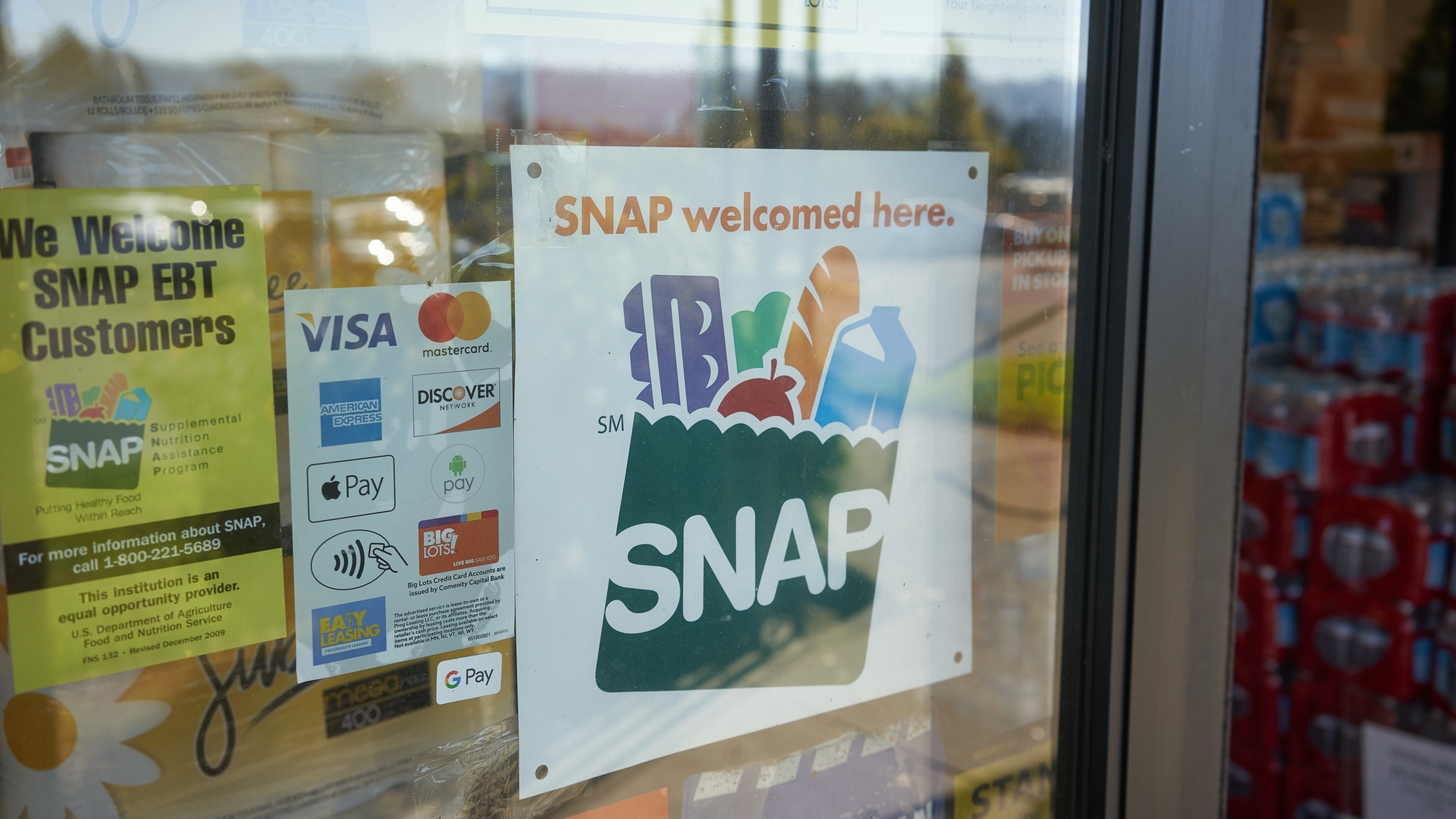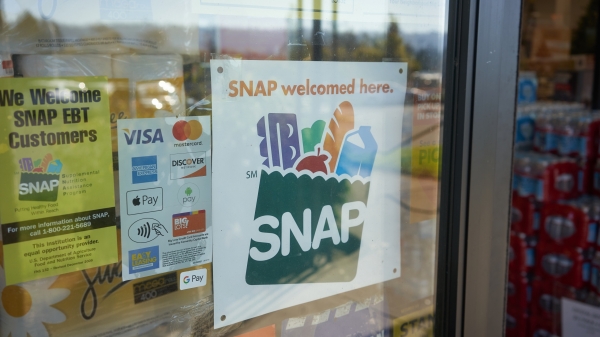|
Getting your Trinity Audio player ready...
|
For many of us, the first months of the COVID-19 pandemic disrupted nearly all of normal life. Businesses closed, either temporarily or permanently. People lost jobs and income. Children were not attending school in person. And millions of Americans were suddenly facing an unexpected problem: hunger.
Temporary increases to Supplemental Nutrition Assistance Program (SNAP) benefits helped ease that suffering for families across Alabama and nationwide. But those benefits will expire at the end of February, and that means hunger is likely to get worse again. As the end of the official federal pandemic emergency declaration approaches, Alabama families receiving SNAP benefits are facing a benefit decrease that will cut their food assistance significantly.
State and local officials can’t stop the expiration of these temporary SNAP benefits. But they can and should act in other ways to help Alabama families deal with higher food costs. School districts should expand access to free school meals. The state should fund a program that makes fruits and vegetables more readily available for SNAP participants. And legislators should untax groceries to make it easier for every Alabamian to keep food on the table.
The pandemic put a spotlight on hunger
By mid-2020, 12 percent of Alabama families said they sometimes or often didn’t have enough food to eat, according to the Census Bureau. And those hunger challenges were more severe in communities of color early in the pandemic. Nearly 19 percent of Hispanic Alabamians and 21 percent of Black Alabamians said they didn’t have enough food. Enrollment for SNAP food assistance rose to record levels, but that wasn’t enough to solve the sudden and severe hunger crisis.
In response, Congress and the U.S. Department of Agriculture approved emergency food assistance benefits for both child nutrition programs and SNAP. One of the most important improvements was SNAP emergency allotments.
This policy raised SNAP benefits for eligible participants to the maximum allowed as long as state and federal emergency declarations existed. In 2021, emergency allotments were revised to ensure all SNAP households received at least an additional $95 a month in emergency food assistance.
Those increases are about to expire, though. Congress passed a budget in December that will end SNAP emergency benefits in February 2023.
What happens now
The Alabama Department of Human Resources has begun sending letters to SNAP participants telling them the extra benefits will stop after Feb. 28. Nearly 400,000 Alabama households will see average cuts to their SNAP benefits of around $170 a month.
Particularly hard hit will be older adults and people with disabilities who live alone. Before the pandemic, SNAP benefits for these households were often minimal and could be as low as $16 per month. Emergency allotments boosted these folks’ benefits to the maximum of $281 per month for an individual. But with these increases ending, all of these participants will now see their food budgets decline, possibly to as little as the current minimum of $23 per month.
The loss of SNAP emergency allotments almost certainly will increase hunger, both in Alabama and nationwide. But individual participants have a few options to help reduce the financial pain:
- SNAP benefits don’t have to be spent in the month in which they are received. Emergency SNAP allotments will roll over on Electronic Benefits Transfer (EBT) cards as long as the card is used at least once a month. This will allow participants to stretch their emergency dollars as far as possible.
- Older adults or people with disabilities are eligible to deduct medical costs, including transportation to the doctor or pharmacy, before calculating SNAP benefits. Updating medical costs may result in more assistance than people are receiving.
- All households participating in SNAP can deduct the cost of housing and dependent care. Updating housing costs and the cost of child care or care for adults with disabilities could increase SNAP benefits.
- Some grocery stores and farmers markets offer extra fruits and vegetables for SNAP participants. Find out where you can get these Double Up Food Bucks.
What policymakers can do to help
Hunger is a systemic problem that requires systemic solutions. Federal, state and local officials all have roles to play in helping to reduce hunger in Alabama and the nation. Below are a few of the many policy options available.
Untax groceries
Alabama is one of only three states with no tax break on groceries. Removing the state sales tax from food would allow everyone to afford an extra two weeks’ worth of groceries. Lawmakers will introduce legislation to end the state grocery tax during the 2023 regular session, and Arise will support these bills. Join our email list for updates on these bills and alerts on how you can help end the state grocery tax.
Expand free school meals
Many local schools and districts provide free school meals for all their students. Universal free meals improve students’ health and education. They also reduce the financial burden on families struggling to make ends meet.
Eligible school districts that have not adopted the Community Eligibility Provision should work to do so. And state policymakers should remove administrative barriers for schools seeking to expand free school and summer meal programs.
Provide state funding for Double Up Food Bucks
The Double Up Food Bucks program offers extra fruit and vegetables for SNAP participants. This program promotes better health for SNAP participants and more money for Alabama’s farmers. But the absence of state dollars limits the number of stores where these extra benefits are available. Arise encourages the Legislature to provide state funding for Double Up Food Bucks in the 2024 budget year.
Strengthen SNAP in the Farm Bill
Congress must reauthorize the Farm Bill, which includes SNAP, next year. Many advocates are calling for Congress to make the emergency allotment amounts permanent, either in the Farm Bill or through other legislation. Other groups are encouraging Congress to increase all SNAP benefits to a level that better reflects the real cost of food. Sign up for Arise’s email list for action alerts and updates as we get closer to the Farm Bill reauthorization.





















































